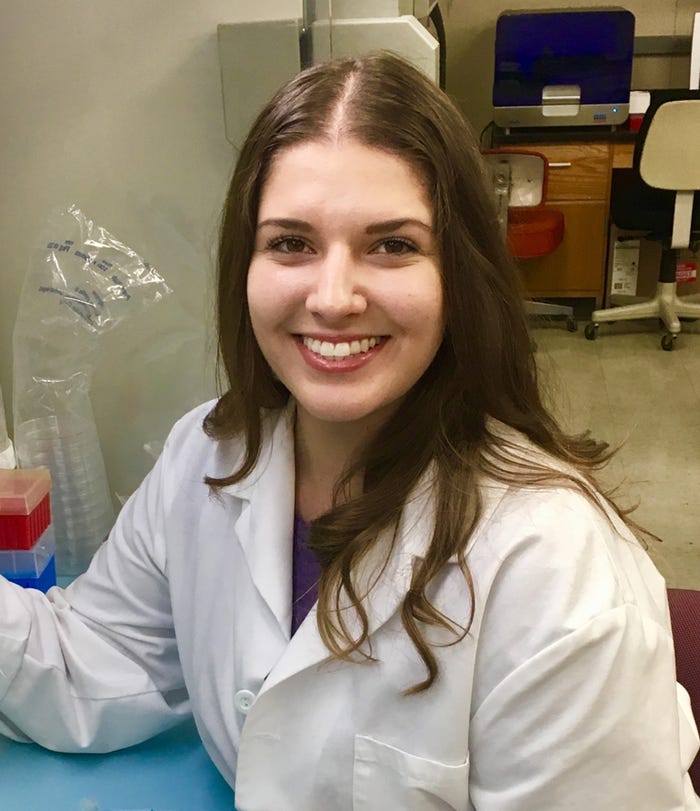
Bliss Betzen grew up a plant and agriculture lover, the legacy of a father with longtime leadership experience in Kansas Farm Bureau and a mother who spent some time as a professional landscape designer. A major in agronomy at Kansas State University was a natural fit.
"From early childhood, I would toddle after Dad, going to county Farm Bureau meetings, surrounded by farmers; or tagging along with mom, surrounded by plant lovers," she says. "Given that, even though I grew up in the town limits of Parsons, agronomy was a good fit for me.

"Wheat has always had a special place in my heart," Betzen says. "I'm a Wheat State girl. Being able to find help for wheat growers in Africa and the Middle East would be a major accomplishment."
In the U.S., major stem rust losses are rare, so research is concentrated on leaf rust and stripe rust which pose larger threats. But for farmers in Africa and the Middle East, the stem rust is a deadly real threat.
"It is extremely virulent, something that blindsided a lot of the wheat community in Africa," Betzen says. "Resistance hadn't been established for this race group at the time. When it hit, it hit hard. It has rapidly evolved over the years, just like other rust and fungi. We have to keep working to find resistance genes to be available for each strain as it evolves."
Betzen's research involves studying the original Ug-99 race of stem rust, along with all of the variants that have emerged so far.
"When I see variants, I study the new additions or deletions in a sequence that indicate how it is evolving and what is allowing it to pass our defenses," she says.
Betzen says she works with synthetic duplicates of the Ug-99 race, not with the actual spores. Since the disease does not exist in the U.S., working with the actual fungus would present too great a threat to the domestic crop.
Betzen is just one of many scientists around the world who are working to find an answer to the pathogen. Most of them, like Betzen, are looking for resistant genes among the many wild parents of bread wheat, with materials from places such as the wheat genetics library seed bank at K-State.
Betzen says she plans to develop her career in the wheat genetics field.
"I have a really big heart for wheat and food security is one of the things that drove me to this career field," she says. "It is important to understand the evolution of the diversity of this stem rust race."
Ug-99, in severe cases, can cause a 100% loss of the wheat crop in affected fields. While scientists work to find resistant genes that can defend against this pest, the farmers in Africa and the Middle East are doing their best to contain it in areas where it is already present."
About the Author(s)
You May Also Like




